Review
Peugeot’s E-208 is one of the best small electric cars currently on sale. With the addition of a new powertrain, it now goes further and faster while keeping running costs low.
We like the car’s premium interior, new infotainment system and stylish looks, but its unconventional driving position does not suit all tastes.
Overview
Peugeot was at the forefront of the electric supermini revolution, with the E-208 coming to market as one of the first. It has since been given a facelift, giving the car a more assertive and modern look, updated technology and a longer-range powertrain.
The E-208 is one of our favourite small EVs. It’s good to drive, stylish and affordable, making it a hit with company car drivers.
Externally, the new E-208 features a refreshed bumper and grille with new headlights and tail lights. The car also wears Peugeot’s new logo.
As with the recently updated Vauxhall Corsa Electric, the Peugeot E-208 gains a larger battery and a more powerful electric motor that gives it more range and better performance. This new powertrain is offered alongside the one from the previous E-208.
Pricing for the E-208 starts at £31,145, with three trim levels – Active, Allure and GT – offered.
Comfort and practicality
The E-208 sits at the premium end of the supermini segment, offering a stylish and upmarket cabin.
The seats are comfortable and supportive, up front, while rear seat passengers get a slightly more cramped space.
In line with the rest of Peugeot’s line-up, the E-208 uses the brand’s i-Cockpit layout, which places the instrument cluster high up on the dashboard, above a small oval-shaped steering wheel.
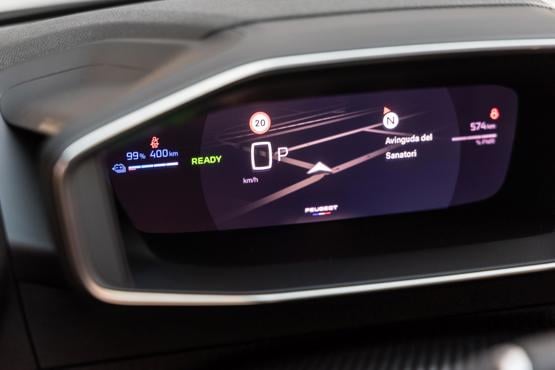
We’re not big fans of the arrangement, as it requires an unconventional driving position, but it probably works better in the smaller 208 rather than in Peugeot’s larger cars.
Most of the interior plastics are of a high quality and the use of different materials and textures throughout the cabin enhances the overall feel.
Boot space is adequate, with 309 litres of space on offer. Frustratingly, there’s no additional storage compartment for stashing the charging cable so it has to share a space with your shopping or luggage.
Safety and technology
One of the key changes for the new E-208 is the inclusion of Peugeot’s latest infotainment system. It’s delivered via a new 10-inch touchscreen, which is a significant improvement over the outgoing setup.
The digital instrument cluster has also been updated with clearer graphics and improved display quality.
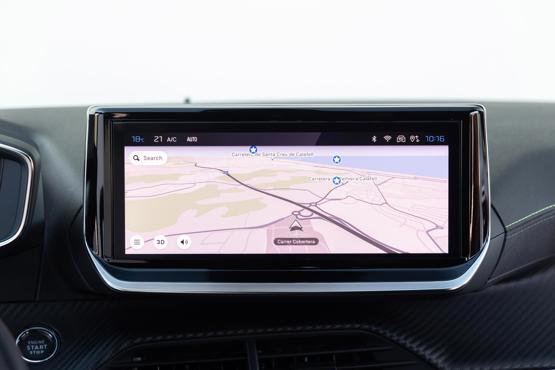
Peugeot has packed in a suite of ‘big car’ features to the E-208, which include adaptive cruise control, lane keep assist and blind spot monitoring available optionally.
Top-spec models are equipped with keyless entry, heated front seats and a reversing camera as standard. The standard level of kit isn’t particularly generous; therefore we’d recommend opting for at least the mid-spec Allure version.
Driveability and range
The E-208’s new powertrain incorporates a 51kWh battery and a 156PS electric motor, giving a WLTP range of up to 258 miles.
Performance is reasonable, with acceleration from 0-62mph taking 8.2 seconds. To access the car’s full power output you need to select the Sport driving mode, otherwise it feels a little underwhelming.
Our testing resulted in an efficiency of 3.8mi/kWh, suggesting the E-208 is capable of around 195 miles per charge. As with most small electric cars, the E-208 is most efficient at lower speeds around town. Longer motorway trips, where speeds are higher for longer, tend to deplete the battery more quickly.
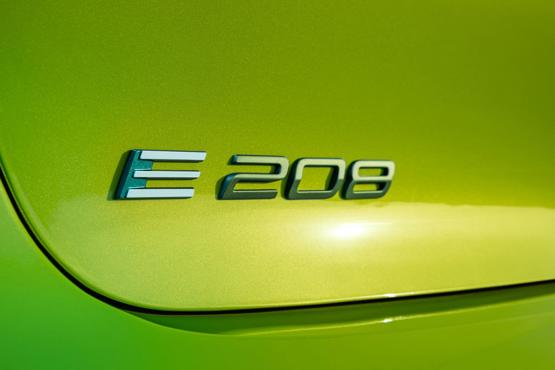
Peugeot also offers the E-208 with the 136PS electric motor and 50kWh battery from the older model. These versions feel very similar to drive but are less efficient in real-world use, managing around 150 miles per charge.
One of the E-208’s better attributes is handling. The car’s chassis is well balanced making it fun to drive while delivering a comfortable ride.
Around town, the compact footprint of the car makes it easy to manoeuvre. Once you head out onto the motorway it feels refined and stable, managing a quiet cabin at higher speeds. We did notice a degree of noise from the electric motor once we were going above 60mph, although its only audible if the radio is switched off.
Company car tax and running costs
With company car tax bills starting from as little as £10 per month, the E-208 is remarkable value for drivers. Pricing from £31,145 makes it cheaper than equivalent Corsa Electric variants, too. You can compare company car tax and running costs for the Peugeot E-208 by visiting the Fleet News Company Car Tax Calculator.
The range-topping GT variant, paired with Peugeot’s larger battery comes close to the starting price for VW’s ID3. The ID3 is a larger car, but it also has more power and a longer range. Similarly, the MG4 undercuts the E-208, despite being in the class above, while offering better range and performance.
Peugeot doesn’t have many rivals in the small car sector at the moment, but a new Mini Electric is due to launch in 2024, offering a similarly premium feel to the E-208.
Running costs across the E-208 line-up are competitive, costing 42 – 44p per mile. The BYD Dolphin is a little cheaper, but it has a less upmarket feel and isn’t as good to drive as an E-208.
Charging times
3-pin plug: 22 hours
7kW wallbox: 7.5 hours
11kW AC: 5.25 hours
100kW DC rapid: 30 mins (0-80%)
Matt has been an automotive journalist for nine years and has driven just about every new car and van that's on sale. As content editor - vehicles he is responsible for the automotive content on Fleet News and also contributes to Automotive Management. Prior to this, Matt worked in the automotive industry for 10 years.


Specs
| Manufacturer | Peugeot |
| Model | E-208 Electric Hatchback |
| Specification | Peugeot E-208 Electric Hatchback 100kW Active 50kWh 5dr Auto |
| Model Year | 2024.00 |
| Annual VED (Road tax) | £10 |
| BIK List Price | £28,145 |
| Range | 225.00mile(s) |
| CO2 | N/A |
| BIK Percentage | 3% |
| Insurance Group | N/A |
| CC | 1 |
| Fuel Type | Electric |
| Vehicle Type | Small car |
| Luggage capacity (Seats up) | 309litres |
| Doors | 5 |
Running Costs
| P11D | £28,145 |
| Cost per mile | 40.63ppm |
| Residual value | £6,650 |
| Insurance group | N/A |
| Fuel Type | Electric |
| Cost per mile | 175.65ppm |
| Fuel | 2.17ppm |
| Depreciation | 170.50ppm |
| Service maintenance and repair | 2.98ppm |
Rivals
Info at a glance
-
P11D Price
£28,145
-
MPG
N/A (WLTP) -
CO2 Emissions
N/A -
BIK %
3% -
Running cost
3 Year 60k : £6,650 4 Year 80k : £5,225 -
Fuel Type
Electric -
Range
225.00mile(s)

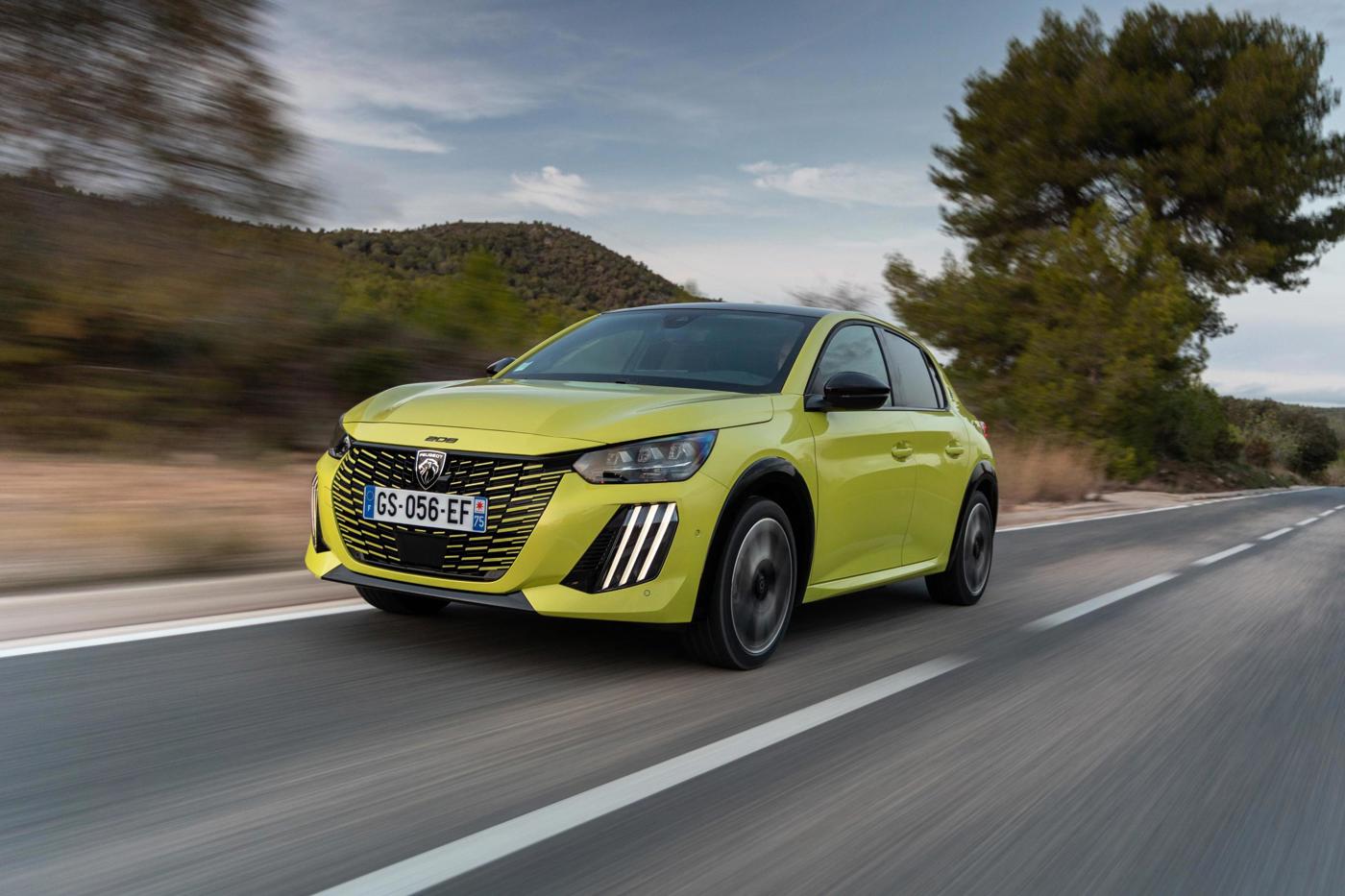
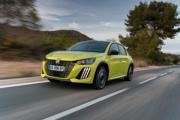

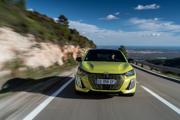
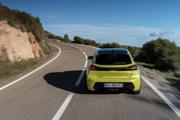

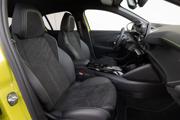

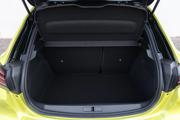
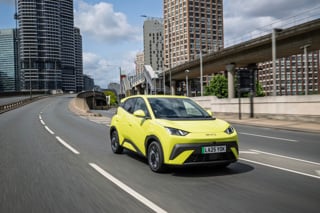
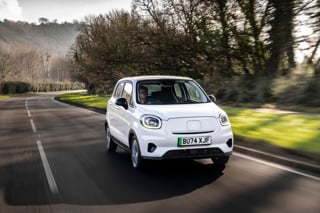
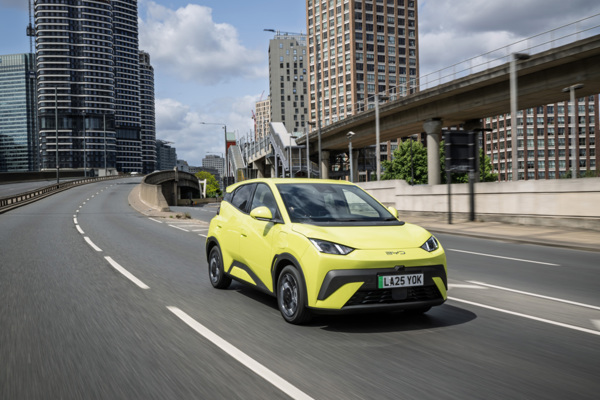
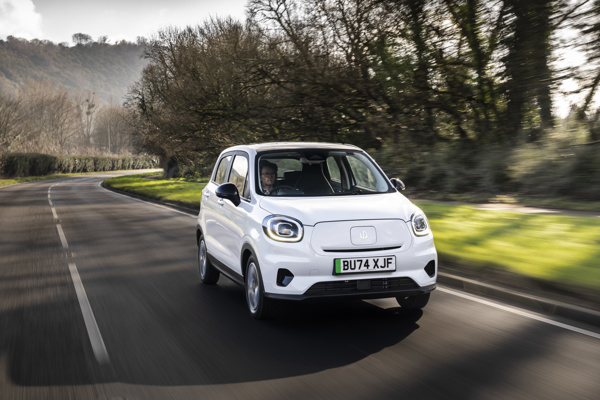
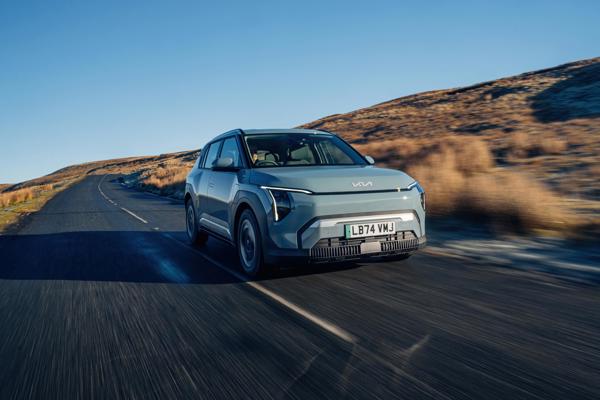
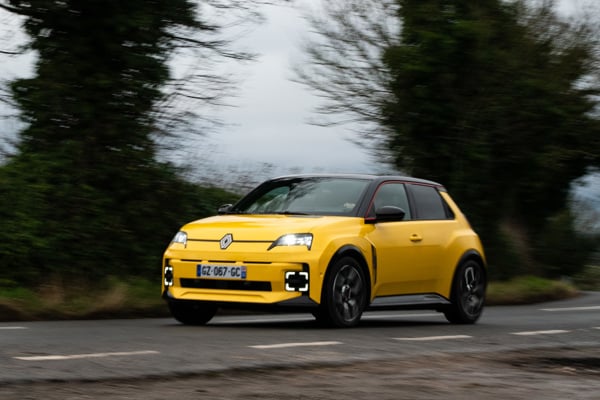
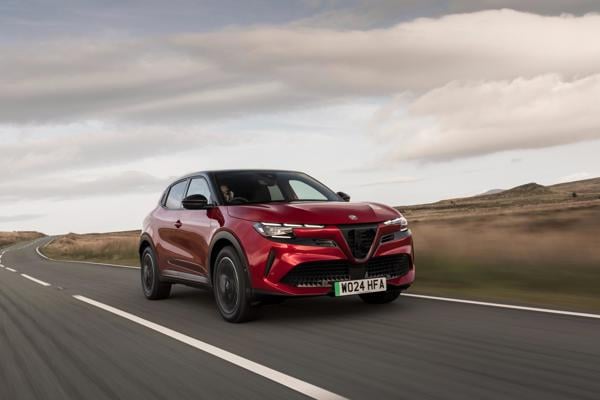
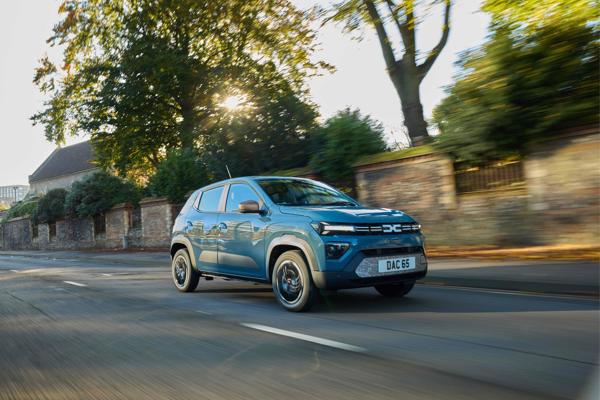



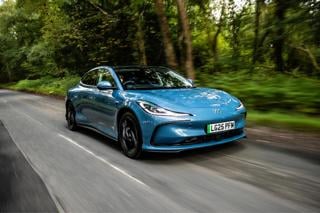













Login to comment
Comments
No comments have been made yet.